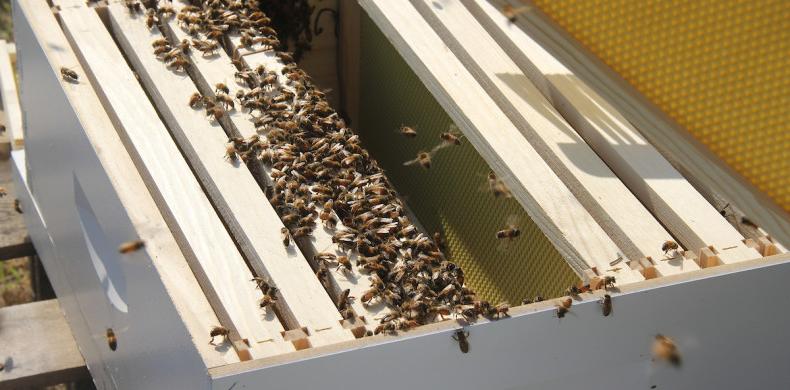2018年8月17日

“We are very proud to be the first college or university in the state to achieve this recognition,” 德里克。马丁, 可持续性 coordinator at Susquehanna. “We have worked very hard at Susquehanna to make our campus a hospitable environment for 蜜蜂 and all pollinators. This recognition is confirmation that we’re doing the right things to support pollinators and our local environment.”
Pollinators like bumble bees, 汗水蜜蜂, 梅森蜜蜂, 蜜蜂, 蝴蝶, 飞蛾, 甲虫, 苍蝇, hummingbirds and many others are responsible for the reproduction of 90 percent of the world’s wild plant species and 30 percent of the world’s food crops.
Susquehanna joins more than 100 other cities and campuses across the country united in improving their landscapes for pollinators.
Already, the university:
- Maintains three 蜜蜂的蜂巢 at the Center for Environmental Education and Research (CEER) on Sassafras Street
- Founded the student-run Beekeepers Club, which maintains the 蜜蜂的蜂巢 at the CEER
- Planted two large plots of wildflowers to promote pollination
- Holds pollinator awareness events during Earth Week
- Convened a Bee Committee, a subcommittee of the university’s 可持续性 Committee
Certified campuses must renew their certification each year by reporting on accomplishments from the p牧师ious year.
前进, Susquehanna’s Department of Facilities Management will draft an integrated pest management plan to govern the use of pesticides, herbicides and insecticides, which is already limited on campus and not used at all at the CEER.
Bee City USA and Bee Campus USA are initiatives of the Xerces Society for Invertebrate Conservation, a nonprofit organization based in Portland, 矿石., with offices across the country. Bee City USA’s mission is to galvanize communities and campuses to sustain pollinators by providing them with healthy habitat, rich in a variety of native plants and free of pesticides.
